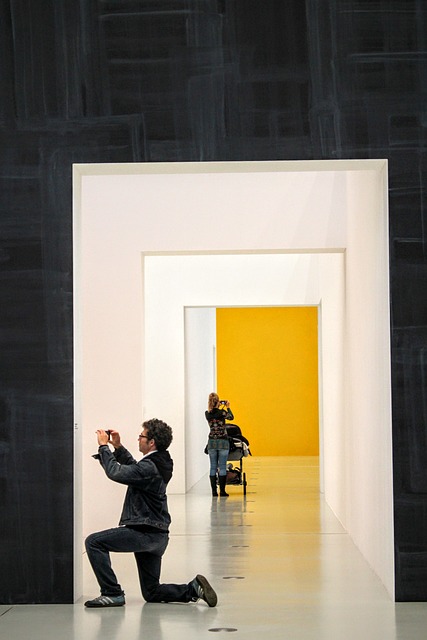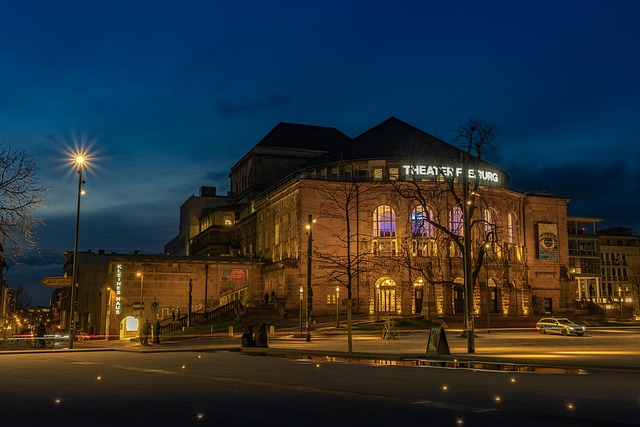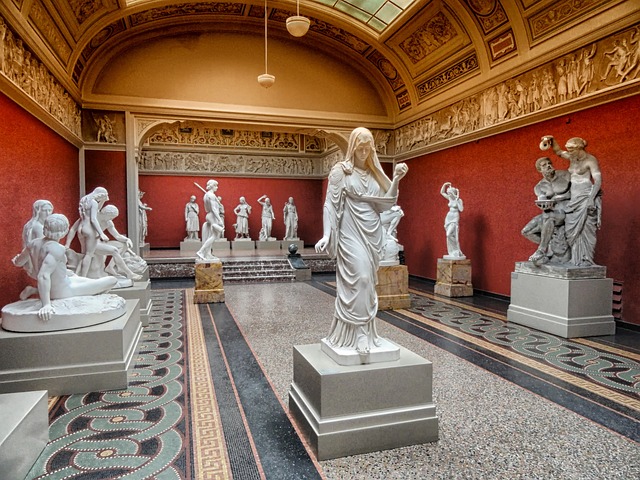Cultural centers are vibrant educational spaces offering a diverse range of artistic activities including local art galleries, community theater, public art, music concerts, and artist studios. These hubs foster creativity, cultural exchange, and lifelong learning through workshops, seminars, and adult education courses. By integrating these various components, cultural centers preserve traditions, inspire curiosity, and promote inter-disciplinary engagement within the community.
Cultural centers play a pivotal role in community education, serving as vibrant hubs for artistic expression and learning. This article explores diverse programs within cultural spaces that foster creativity and knowledge. From local art galleries transforming into educational centers to community theater performances engaging audiences, each element contributes uniquely. Public art installations offer interactive learning experiences, while music concerts enhance cultural awareness. Discover how these initiatives not only enrich communities but also inspire artists and learners alike through the multifaceted offerings of cultural centers and artist studios.
- The Role of Cultural Centers in Community Education
- Local Art Galleries as Educational Hubs
- Community Theater Performances: Engaging and Teaching
- Public Art Installations for Creative Learning
- Music Concerts and Their Impact on Cultural Awareness
The Role of Cultural Centers in Community Education

Cultural centers play a pivotal role in community education by providing diverse learning opportunities that cater to all ages and interests. These spaces serve as hubs for artistic expression, cultural exchange, and intellectual growth. By hosting local art galleries, community theater performances, public art installations, music concerts, and artist studios, cultural centers foster an environment where residents can explore their creativity and gain a deeper understanding of the arts.
Moreover, these centers often offer educational programs that range from workshops and seminars to after-school activities and adult learning courses. They provide a platform for local artists and educators to share their knowledge, skills, and experiences, thereby enriching the cultural fabric of the community. Through these initiatives, cultural centers not only preserve and promote local artistic traditions but also equip individuals with new skills, inspire curiosity, and encourage lifelong learning.
Local Art Galleries as Educational Hubs

Local art galleries play a pivotal role in transforming into educational hubs that cater to diverse community needs. Beyond showcasing artistic talent, these venues offer a platform for learning and engagement through various cultural programs. Community theater performances and public art installations serve as dynamic tools for teaching arts appreciation, creativity, and even historical context. By hosting workshops, lectures, and interactive sessions around exhibitions, galleries foster an environment where visitors can delve deeper into the artistic process and connect with local artists.
Music concerts and artist studios within cultural centers further expand the educational scope. These spaces allow community members to participate actively in music, visual arts, and performance art, fostering a sense of ownership and collaboration. The integration of such diverse art forms not only enriches the cultural landscape but also encourages inter-disciplinary learning, making local art galleries key contributors to the overall intellectual and artistic growth of the community.
Community Theater Performances: Engaging and Teaching

Community Theater Performances play a pivotal role in cultural centers, offering more than just entertainment. These dynamic showcases become powerful educational tools that engage and teach diverse audiences. By presenting local stories, historical narratives, and contemporary issues on stage, community theaters foster an understanding of different perspectives and enrich the cultural fabric of the region.
The interactive nature of theater performances encourages active participation from viewers, promoting critical thinking and emotional intelligence. Moreover, these events create a sense of community, bringing people together to experience and appreciate the arts. Local art galleries, public art installations, music concerts, and artist studios often collaborate with community theaters, enhancing the overall cultural richness and providing opportunities for interdisciplinary learning within the vibrant space of cultural centers.
Public Art Installations for Creative Learning

Public art installations offer a unique and engaging way to foster creative learning within cultural centers. These vibrant displays transform ordinary spaces into dynamic environments that inspire curiosity and interaction, especially when combined with local art galleries and community theater performances. Visitors can immerse themselves in diverse artistic expressions, from sculptures and murals to interactive pieces, stimulating their senses and sparking imaginative thoughts.
Cultural centers that incorporate artist studios and host music concerts alongside public art installations create an immersive educational experience. Such initiatives not only promote local talent but also encourage community participation by providing a platform for artists to showcase their work. This blend of visual, auditory, and performance arts fosters a holistic learning environment, making cultural centers vital hubs for creative expression and education.
Music Concerts and Their Impact on Cultural Awareness

Music concerts play a pivotal role in fostering cultural awareness within communities, especially when hosted at local art galleries or cultural centers. These events bring people together to appreciate diverse artistic expressions, from classical performances at community theater settings to modern interpretations showcased through public art installations. By providing platforms for both established and emerging artists’ studios, cultural centers facilitate an exchange of ideas and traditions, enriching the social fabric.
Concerts offer a unique window into different cultures, musical styles, and historical contexts. They inspire conversations about global artistic movements and local talents, thereby enhancing community ties and fostering an appreciation for the richness of artistic diversity. Moreover, music has a profound impact on emotions and cognitive functions, making these cultural events memorable experiences that can positively influence attendees’ perspectives and understanding of the world around them.
